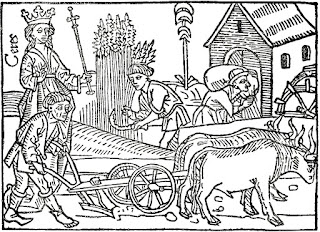More often than not villains are simply misunderstood. Literally. Because “villain” is derived from Latin “vill-” which means a villa or a home in the countryside. Those who worked in a country home, usually peasants and farmers, were constantly rebelling against their feudal lords against merciless taxation. And after all of it, lords were glorified in lore, and the villains vilified. Villains were seen in the eyes of the lords as vile, unwashed and stupid, and since the lords reserved the art of writing for themselves, that is what survived.
Despite that, villains managed to cling on to a small piece of fertile soil for themselves. The old rustic songs these countryside peasants used to sing came to be called “villanelle”: a form of poetry with 19 lines, and a refrain repeated periodically, with only two rhymes throughout. You may know it from a poem written by Dylan for his dying father in “Do not go gentle into that good night”. But was he referring to death as the villain? Or raging against “the dying of the light” as in the loss of opportunity to achieve your just potential, so that no more are hard-working peasants turned into villains? In any case, common knowledge can be unjust. And at times even blinding and untrue.
And that’s another lesson in etymology, that to find what’s hiding in the plain sight, you need to squint (smugly).

No comments:
Post a Comment